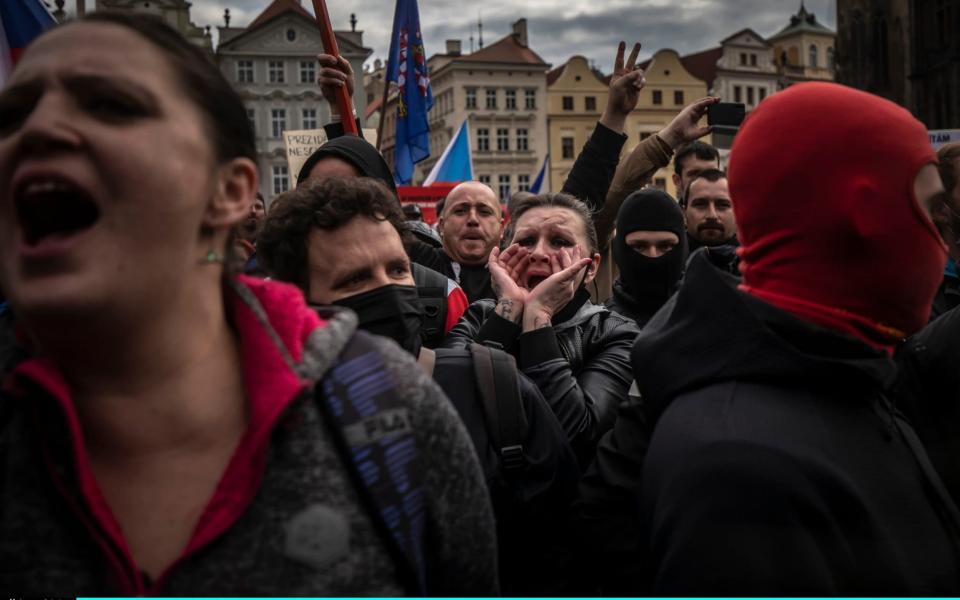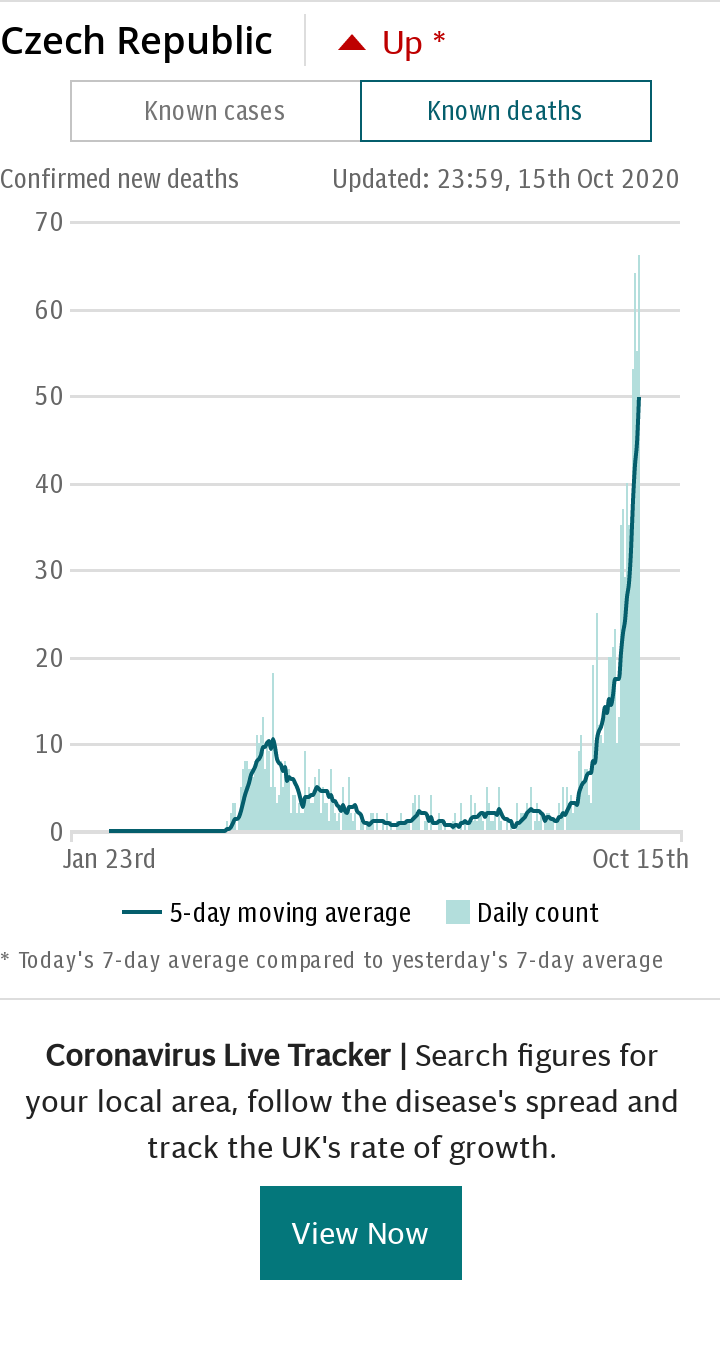Czech government shuts most shops, curbs movement to stem Covid-19 surge

The Czech government on Wednesday ordered most shops and services to shutter and sought to limit all movement to essential trips such as for work and medical visits to curb Europe's fastest growth in new coronavirus infections.
Roman Prymula, the health minister, said the Czech health system would soon reach the limits of its capacity and that hospitals would run short of beds in November without immediate action.
Mr Prymula said that, despite the government increasing the nation's bed capacity, without action beds would reach their limit by November 8-10.
He said that the nation was on course to "exhaust" the capacity of the health care system.

Announcing the new measures on Twitter, Mr Prymula wrote that people's movement will be limited to "essential trips" to work, see family, shop or attend medical appointments.
"The government will... curb movement and contacts with other people... with the exception of trips to work, shopping and trips to the doctor," Health Minister Roman Prymula told reporters.
Pharmacies and food shops will remain open, but most other shops and services will be closed, in a move that echoes steps taken across Europe back in the spring. The earliest date shops will be allowed to reopen is November 3.
The Czech government also announced that it will reimburse companies that have been forced to shut due to the latest measures.
Po jednání vlády jsou přijata tato opatření. pic.twitter.com/qdoPUslZAh
— Roman Prymula (@profesorPrymula) October 21, 2020
The country reported 11,984 new coronavirus cases for Oct. 20, the highest daily tally on record, and newly reported deaths jumped by 106 over the past 24 hours to 1,619.
"The measures, while quite robust and burdensome for the population, are absolutely necessary," Mr Prymula told a news conference.
The measures were due to take effect at 6am on Thursday and last until November 3.
Mr Prymula said measures would be eased as soon as the "R" number measuring how many people get infected on average from each new coronavirus case dropped to 0.8, from the current rate of around 1.36. He said that could be achieved within weeks.

 Yahoo News
Yahoo News 